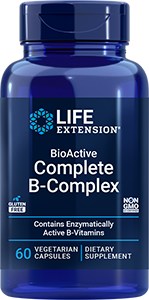
Newsletter
Newsletter
Low Vitamin D Associated with Increased Risk of Infection Among People with Diabetes

People who had low levels of serum vitamin D had a greater risk of infections compared with those with higher levels, in a study that included nearly 20,000 men and women with type 2 diabetes.
People with diabetes have lower vitamin D levels than those without diabetes. People with type 2 diabetes also have a 47% increase in the risk of mortality caused by infections, compared with the general population.
Researchers Ji-Juan Zhang and colleagues found that people with diabetes who had serum vitamin D levels of less than 10 nanograms per milliliter (ng/mL) had a 44% greater risk of total infections compared with levels of 20 ng/mL to 30 ng/mL. Low vitamin D levels of less than 10 ng/mL were associated with a 47% higher risk of gastrointestinal infections, a 49% higher risk of pneumonia and a 41% higher risk of sepsis compared with levels of 20 ng/mL–30 ng/mL. Variations in vitamin D receptor genes were not significantly associated with serum vitamin D concentrations or with the relationship of vitamin D levels to incidence of infections.
The current investigation included 19,851 people with type 2 diabetes who enrolled in the UK Biobank from 2006 to 2010. Subjects selected for the study had available genetic data and information concerning serum levels of 25-hydroxyvitamin D [25(OH)D]. Hospital inpatient and death registers provided information concerning total infections for each participant as well as the incidence of common infections, including gastrointestinal infections, pneumonia and sepsis, during a median follow-up period of 13.2 years. Infections occurred in 24.7% of the group during follow-up.
“We found that lower serum 25(OH)D concentration (less than 20 ng/mL) was associated with higher risks of infections in patients with type 2 diabetes, regardless of genetic variants in vitamin D receptor,” Ji-Juan Zhang and colleagues wrote. “Our findings highlight the importance of maintaining adequate 25(OH)D concentrations in reducing the risk of infections in patients with type 2 diabetes.”
The findings were reported in the August 2024 issue of the American Journal of Clinical Nutrition.1
Products
Apply What You’ve Learned: Infections
- An infection occurs when microorganisms such as bacteria, viruses, fungi or yeast invade and multiply in the body. Infections can occur in one or more areas or organs, or in the blood, as occurs during septicemia (which can lead to sepsis).
- Infection depends upon the resistance of the host. Lowered resistance due to poor nutrition, stress, insufficient sleep, the presence of another illness, current or prior use of some disease treatments (such as chemotherapy and antibiotics), or aging can increase the risk of infection if a person is exposed to disease-causing microorganisms.
- Nutrients that help support a healthy immune system include vitamin C, vitamin D, whey protein, garlic and more.2-5 A healthy microbiome is also helpful in the prevention of some infections.6
- Zinc is known for its ability to shorten the duration of ongoing colds when used as a treatment.7,8 Zinc is commonly used in the form of lozenges during colds so that the mineral comes into direct contact with the mucosa of the throat.
References
- Zhang JJ et al. Am J Clin Nutr. 2024 Aug;120(2):398-406.
- Sorice A et al. Mini Rev Med Chem. 2014 May;14(5):444-52.
- Carr AC et al. Nutrients. 2017 Nov 3;9(11):1211.
- Ismailova A et al. Rev Endocr Metab Disord. 2022 Apr;23(2):265-277.
- Arreola R et al. J Immunol Res. 2015:2015:401630.
- Manos J. APMIS. 2022 Dec;130(12):690-705.
- Nault D et al. Cochrane Database Syst Rev. 2024 May 9;5(5):CD014914.
- Hemilä H. Open Respir Med J. 2011:5:51-8.
Featured Life Extension Magazine® Article
Prevent Damage from Chronic Stress
By Heather L. Makar
Everyone experiences the effects of stress. Cortisol is a hormone that helps us cope with that stress.
When chronic stress occurs, cortisol can become elevated over time, resulting in an increased risk of cardiovascular disease, signs of aging and premature mortality. Such herbs as green tea, lychee, Magnolia officinalis and Phellodendron amurense extracts may help lower cortisol. A trial of people with moderate to high stress levels who were given a combination of Magnolia officinalis and Phellodendron amurense found lower cortisol and less stress, including diminished tension, depression, anger, fatigue and confusion.
Read Full Article
What's Hot
Health Concern
Higher serum antioxidant vitamins predict lower risk of respiratory illness and mortality
A pooled analysis published on June 9, 2022, in Respiratory Research concluded that having lower serum levels of vitamins C and E was associated a greater risk of suffering from wheeze or respiratory diseases, and that lower vitamin A, C and D were associated with an increased risk of dying from respiratory diseases.

Immune Senescence
Gain valuable insights into how aging impacts the immune system. Also discover how positive lifestyle changes and immune-enhancing nutrients may support a youthful immune system.
Related Life Extension Magazine® Articles

Reduce Cold, Flu, and Allergy Symptoms
Researchers identified two compounds that in clinical trials helped prevent colds and flu and reduce severity and duration when they occur.

Vitamin D and Immunity
About 40% of Americans have insufficient vitamin D levels. Recent studies demonstrate that vitamin D boosts cold weather immunity.
Highlight
When it comes to your well-being, there are no one-size-fits-all solutions. That’s why we offer FREE 1:1 sessions with our Wellness Specialists. Our team of health and nutrition experts is ready to answer all your health-related questions, 7 days a week, 365 days a year.
Learn MoreLife Extension Magazine® Issue Now Online
A remarkable number of healthy-longevity findings have been published over the past 18 months.




